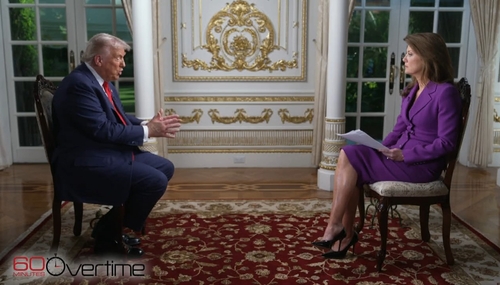The business press just can't understand why the Federal Reserve decided not to raise interest rates on Thursday. After all, these alleged journalists have been telling us for months bordering on years that U.S. economy is really in good shape. So it should be able to handle a rate hike, especially after over seven years of rates at essentially zero. The problem is that they now believe their own bogus blather. The U.S. economy is not in good shape, and data seen during the past several weeks show that the situation is deteriorating, not improving.
Excerpts from an early Friday report at the Associated Press by Josh Boak illustrate how out of touch the business press really is (bolds and numbered tags are mine):
WHAT THE FEDERAL RESERVE WANTS TO SEE BEFORE RAISING RATES
So what will it take for the Federal Reserve to finally raise interest rates?
The U.S. economy is now in its seventh straight year of expansion. It's growing at a steady if unexciting 2.2 percent annual rate. [1] Unemployment has sunk from a 10 percent peak to a reassuring 5.1 percent. [2] Auto and home sales have accelerated. [3]
Yet on Thursday, Fed officials declined to lift rates from record lows.
The decision left some Fed watchers mystified over what the central bank needs to see to begin phasing out a policy it launched in 2008 to help save a collapsing economy. ...
... The doubts remain so severe that the Fed appears to consider even a mild rate hike - one that many economists say will barely affect most Americans - a step too far.
Yellen signaled some concern Thursday about China's slowdown and volatile financial markets. [4] But many economists say the Fed is paying particular attention to three key gauges in weighing whether to raise rates. [5] They say the Fed needs to see:
- A STABLE DOLLAR
... - STEADY OIL PRICES
... - AN EVEN STRONGER JOB MARKET [6]
Notes:
[1] — When it comes to measuring expansion, winning streaks are not measured in calendar years. They're measured at the very least in quarters. Back in the 1960s during the Kennedy and Johnson administrations, they were typically measured in months. Using a quarters-based metric, the economic expansion has not been continuous, and the press needs to stop pretending that it has been. The economy shrank at an annualized rate of 1.5 percent in the first quarter of 2011, and contracted by 0.9 percent in the first quarter of 2014. The current positive winning streak is therefore five quarters — from 2Q14 to 2Q15.
[2] — The unemployment rate is only reassuring if you believe that every one of the 94 million Americans described as "not in the labor force" isn't looking for work. If they are looking for work, even if not particularly aggressively, they should be included among the unemployed. There is reason to believe that the government has made the benchmarks for what qualifies as "looking for work" tougher since Dear Leader took office. If as few as 5 million of that group of 94 million is genuinely looking for work, the reported unemployment rate should really be about 8.0 percent instead of 5.1 percent. Maybe the administration is fooling the American people, but it's not fooling Janet Yellen. It's reasonable to see the Fed's contention that it needs to see a stronger labor market as a de facto admission that it believes that the government's official unemployment rate is being fudged.
[3] — Auto sales have only accelerated because credit standards have become incredibly lax, and have been accompanied by significant growth in the subprime borrower segment. The level of new-home sales is still only about two-thirds of what one would see in a healthy market.
[4] — Ah yes, it's the rest of the world's fault. It couldn't possibly be weakness here. As will be seen in a moment, there was enough deterioration in the domestic economy during the past several weeks to cause Yellen and the Fed significant concern.
[5] — The first two of the three gauges cited are nowhere near as important as the problems I will cite shortly.
[6] — Boak, in citing the Fed's concern about the job market, could have noted the government's disclosure early Thursday that the economy added 208,000 fewer jobs (255,000 fewer in the private sector) through March of this year than originally thought. But, though it's quite relevant, he didn't.
The U.S. economy has not been performing well since late last year, and there are signs that things are getting worse. Here are just a few of the problem areas:
- Retail sales are tepid.
- Industrial production has declined or failed to grow in five of the past six months.
- Economic growth in general remains historically anemic.
- Manufacturing and trade sales have trailed the same month of the previous year for seven straight months. Meanwhile, inventories are bloated.
- In addition to the jobs write down noted above, August's reported seasonally adjusted increase of 173,000 payroll jobs was far weaker than expected. Based on the raw, not seasonally adjusted data, even that 173K number looked like an overstatement of true job-market conditions.
- The growth in consumer spending and consumption in general have been unimpressive, despite being heavily propped up by (initially) pain-free borrowing (student loans, car loans) and welfare state subsidies (food stamps, Obamacare subsidies).
- As noted earlier today, thanks to Obama-era economic policies, real median household income, which declined by 8.3 percent during and shortly after the recession, is still 6.5 percent below its pre-recession peak.
- Also noted earlier today, again thanks to Obama-era economic policies, the official poverty rate is still more than 2 percentage points higher than it was before the recession. At 14.8 percent, it has barely come down from its 15.1 percent peak in 2010.
Yellen and the Fed had every reason to raise interest rates, and should have, because the past seven years of zero rates have created distortions which must be unwound. But they have a long wait ahead of them if they continue to insist on holding off until the economy looks legitimately healthy. The non-stop pretending in the business press about a "steady" and "reassuring" economy won't change that.
Cross-posted at BizzyBlog.com.




